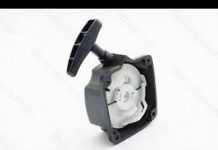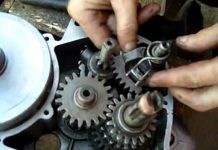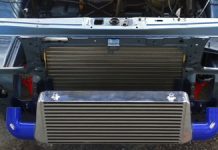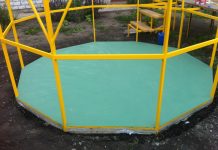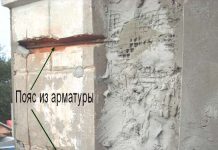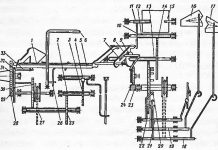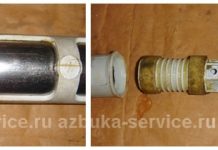In detail: do-it-yourself repair of a steering rack on a Skoda felicia from a real master for the site my.housecope.com.
Removal, overhaul and installation of the steering mechanism
Assembling the steering gear
1 - the Epiploon
2 - the Screw (7 Nm)
3 - a spring washer
4 - the crankcase cover
5 - the O-ring
6 - the Sealing gasket
7 - Adjusting washers
8 - Ball bearing
9 - the Gear
10 - a toothed rack
11 - the Bushing
12 - the Lock ring
13 - the Carter of the steering mechanism
14 - Support washer
15 - the Spring
16 - Adjusting shims
17 - the Sealing gasket
18 - the Cover
19 - a spring washer
20 - Bolt (7 Nm)
Steering gear housing
1 - Cardan intermediate shaft of the steering rack
2 - Bolt (5 Nm)
3 - Protective sheet
4 - the Sealing gasket
5 - the Epiploon
6 - Nut (60 Nm)
7 - the End of the transverse tie rod
8 - the Lock ring
9 - a protective cover of the ball joint
10 - Ring
11 - Crown nut
12 - Cotter pin
13 - the Left steering rod
14 - the Clamp
15 - Protective cover
16 - Connecting link
17 - the Carter of the steering mechanism
18 - Rubber cushion
19 - the Collar of a rubber cushion
20 - Bolt (25 Nm)
22 - the Right steering rod
Power Steering Component Locations
1 - the Steering pump
2 - Tank
3 - Steering gear with distributor and power cylinder
Power steering gear
1 - Power cylinder
2 - Rack transmission
3 - the valve-distributor
4 - Tank
5 - the Steering pump
1 - Rotor
2 - Stator
3 - Housing
4 - the Cover
5 - Pulley flange
6 - the Safety valve
Models without power steering
The rack and pinion drive converts the steering column into movement of the rods that turn the steering wheels of the vehicle.
| Video (click to play). |
The steering box is made of aluminum alloy. The transmission consists of a pinion drive shaft and a toothed rack.
The steering gear shaft is equipped with a pinion and is installed in the rack and pinion housing in two bearings of the PLC 03-29 / 1 type. The shaft assembly is in constant engagement with a toothed rack rigidly connected to the steering rods. Rotation of the shaft causes the rack to move to the right or left. Together with the rack, the steering rods also move, forcing the front wheels of the car to turn.
The steering gear housing is closed from above with a cover fixed with two M6x20 bolts. The cover is installed on the gasket. A hole is provided in the middle of the crankcase through which the steering shaft drive shaft passes. In order to seal the assembly, a 17x28x7 oil seal is installed in the hole.
In order to select the backlash of the shaft bearings, adjusting washers with a thickness of 0.1 and 0.2 mm are used.
The side hole in the crankcase is also closed with a cover, which is fastened with two M6x20 bolts. A sealing gasket is installed under the cover. A bolt passes through the hole in the middle of the cover, designed to adjust the clearance in the engagement of the shaft with the gear rack. The position of the bolt is fixed with a lock nut. The required meshing clearance is maintained by a spring-loaded cracker and equipped with a 28x20 O-ring.
The right side of the steering box is a tube with a bushing seated inside. A toothed rack is placed in the sleeve. The ends of the rack are connected to the steering rods.
Protective rubber boots protect the steering gear from dirt and also prevent grease from leaking out of the crankcase.
The steering gear is attached to the bracket by a cross member of the front suspension beam on two rubber mounts that are installed in clips. Each of the clips is attached with two M8x20 bolts.Both the legs and the clips are different from each other (larger components are installed closer to the steering gear).
Power steering models
Power steering elements are manufactured by TRW Dusseldorf.
The system includes a rack and pinion steering gear integrated in one housing with a power cylinder and a control valve, a steering pump, a hydraulic fluid reservoir and connecting hydraulic lines.
The tie rods are somewhat shorter than those used on models with a manual steering gear. The full travel of the steering wheel (from lock to lock) is 3.0 turns (versus 3.6 turns in manual models). The decrease in the number of shaft revolutions is associated with a lower gear ratio of the rack and pinion mechanism.
In view of the foregoing, in the event of a failure of the power steering system, the steering continues to work, however, it requires a lot of effort when making turns.
When the wheel hits an obstacle (for example, a curb or a stone), the control valve tends to move to the middle position, the fluid pressure decreases, and the effort on the steering gear increases. The driver tries to keep the wheels in the desired position; in this case, the distributor valve is displaced from the middle position and directs the fluid flow into the corresponding cylinder cavity, preventing the rail from moving. This provides feedback from the wheels to the driver.
The working path of the hydraulic booster system is filled with a special liquid Pentosin CHF 11 S in the amount of 0.9 l, which simultaneously serves as a lubricant for the components of the steering mechanism and the pump. The hydraulic lines between the pump, control valve, power cylinder and hydraulic reservoir are made of metal pipes and rubber hoses. Each section is equipped with special nipples.
The main working element of the system is the steering vane pump. A rotor with movable plates rotates in a specially shaped stator. When the pump is operating, liquid enters from the vacuum side, enters the chamber formed by the rotor plates and the stator walls. The volume of the chamber gradually decreases as the rotor turns, the pressure of the liquid increases and it begins to be pushed out through the connecting line into the distributor valve. When the maximum allowable pressure is exceeded, a safety valve is triggered, which connects the working cavity with the vacuum chamber. In this case, the pressure drops abruptly. The maximum pump performance is achieved at a rotor speed of 500 to 700 rpm. The maximum head developed by the pump is 20 kPa. The pump is driven by a multi-ribbed belt, which is also used in parallel to drive the K / V compressor, generator and pump.
The power cylinder, combined with the steering gear and the distributor valve, is attached to the suspension cross member with M10x1.25 bolts (as opposed to M8 bolts in the case of a manual steering mechanism).
The power steering is equipped with diesel models and 1.6 liter petrol models. The only difference is in the route of the connecting lines.
1. In the passenger compartment, give back the fastening nuts and remove the foot stop assembly from the clutch pedal.
2. If appropriate, fold back the carpet, remove the screw and nut that secure the steering column base trim cover. Remove the cover to provide access to the lower propeller joint of the intermediate shaft.
3. Using paint or a marker, mark the position of the pivot in relation to the rack and pinion drive gear, then remove the pivot assembly pinch bolt.
4. Loosen the nuts, remove the washers and loosen the sealing plate and gasket installed around the drive gear.
A damaged gasket must be replaced.
5. Apply the parking brake firmly, then jack up the front of the vehicle and place it on the struts. Remove both front wheels.
6.Remove the cotter pins, then give the nuts securing the ends of the steering rods to the hub assemblies. Release the tips from the hub pivot arms - use a ball joint puller if necessary.
Models without power steering
1. Unscrew the fastening bolts and remove the steering gear clips from the subframe.
2. Separate the rack and pinion assembly from the intermediate shaft and remove it from under the vehicle. Remove the rubber mounts from the steering rack (pads are not interchangeable). Remove the sealing plate with the gasket from the passenger compartment.
Power steering models
1. To minimize the loss of hydraulic fluid, use special clamps or clamps to clamp the supply and return hoses near the reservoir of the steering pump.
2. After marking the connectors, unscrew the fitting bolts on the steering gear assembly (prepare a drain container to collect the leaking hydraulic fluid). Disconnect both hoses and remove the sealing washers.
During assembly, the sealing washers must be replaced without fail. Plug open hose ends and steering housing openings immediately to minimize hydraulic fluid loss and to prevent dirt from entering the system.
3. Release the hydraulic hoses from the intermediate clips and move them away from the steering assembly.
4. Unscrew the fastening bolts and remove the rack and pinion fastening clamps from the subframe.
5. Separate the rack and pinion assembly from the intermediate shaft and remove it from under the vehicle. Remove the rubber mounts from the steering rack (pads are not interchangeable). Remove the sealing plate with the gasket from the passenger compartment.
a) Remove the clamps for securing the rubber boots;
b) Bend the edges of the covers and drain the oil from the crankcase into a clean container;
c) Move the covers towards the ends of the steering rods;
d) Bend back the flats of the flat lock washers securing the nuts at the ends of the rack;
e) Using a screwdriver, bend the recess on the edge of the adapter sleeve in the rail groove;
f) Give back the nuts and disconnect from the thrust bar;
g) Unscrew the two bolts securing the side cover to the crankcase, remove the spring, cracker and rubber O-ring;
h) Remove the steering gear shaft with the upper bearing from the crankcase (clamp the shaft in a vice with soft jaws and pull on the crankcase; if necessary, use a soft hammer);
i) Using a puller, remove the bearing from the shaft;
j) Remove the gear rack from the steering box;
k) Using a special tool, remove the lower bearing from the crankcase.
8. After replacing faulty components, reassemble the mechanism:
Power steering models
1. Follow the procedures in Removal.
2. Install new sealing washers on both sides of the hydraulic hose union, then install the union bolts and tighten to the required torque without removing the clamps / clamps from the hoses.
3. Reinstall the wheels, then lower the vehicle to the ground and tighten the wheel bolts to the required torque.
4. Add fresh hydraulic fluid to the reservoir of the steering pump (see Section Removing air locks from the hydraulic path of the power steering system).
5. Finally, check the angles of the front wheels, if necessary, make the appropriate adjustment (see Section Car wheel alignment angles - general information).
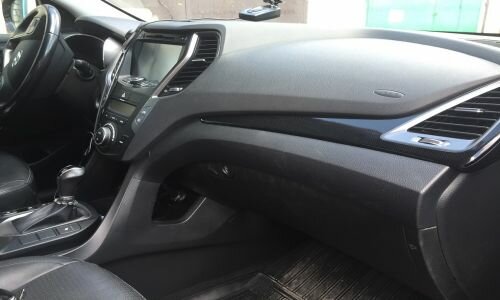


Last winter completely worn out the suspension on my typewriter. Ball joints, tie rods knocked and it is necessary to check the steering tips. The ball was replaced in 40 minutes, but the steering gear took a little longer.
1. So, we have a bunch of spare parts at our disposal, namely, steering rack anthers, steering rods, steering rack bushings, clamps.
2. It all starts with raising the front of the machine, removing both wheels.Then the locknut is unscrewed, and behind it is the pull from the tip (you can also use your hands). This operation is repeated on the second side as well.
3. If there is a need to remove the steering tips, you must first remove the cotter pin from the tip nut, and then unscrew the nut. Then you should make several sharp blows on the lever with a heavy hammer, which will allow us to knock out the steering tip.
The cause of my baby's illness was a torn anther.
4. The steering rack of the Skoda Felicia is secured with 4 bolts. They are unscrewed with a head of 14. Then we unscrew the locking bolt on the steering shaft cardan (in the cabin) using a 12 key. Unscrewing the mounting bolts is very inconvenient - there is practically no room for a turn.
The splined connection of the rack with the steering shaft is disconnected and the rack is removed (it is removed in the direction towards the right wheel).
A couple of years ago I tried to tighten the rail as viewed from the side of the adjusting nut. This is how it looks after that.
5. We begin to remove the anthers, unscrew the old rods. For this, the rolling is cut down and unscrewed with a 32 key.
6. The bushing is changing. From the right side of the rail, it looks like this:
To replace the steering rods, it is necessary to unscrew the steering wheel to the stop to the left side. The retaining ring is removed by means of round-nose pliers. Using a flat screwdriver, we expand between the shaft and the bushing and turn the steering wheel to the right - the bushing should come out together with the shaft.
Then we fill all this with FEOL-2 grease, press in a new sleeve, controlling the position of the grooves.
7. We begin to fasten the rods (do not forget to stop them). The shaft is lubricated with FEOL-2 grease, anthers are put on. We can say that the new rail is almost ready.
8. The rail is installed in place, the rods are screwed into the tips. First, a few turns are made, the steering wheel is set straight - the steering wheel is turned all the way in one direction, the revolutions are counted to the stop, then in the other direction and we set everything approximately in the center (most likely the steering wheel spokes will not be correct, but this can be corrected later). Then the rods are screwed into the tips, the wheels are put on (we set them approximately exactly relative to the wings). Using a tape measure, we measure the size between the wheels - this will be useful to us so that at least you could get to the collapse.
Counter-grips are twisted. We pass a little to put the car straight ahead. We change the position of the steering wheel to a straight line.
9. Immediately go to the collapse!
And do not undertake to make repairs yourself if you are not confident in your abilities. Sometimes it is cheaper to contact the Service Center or Service Station.
Conference of the Skoda Car Lovers Club
there is no factory repair kit.
the shaft itself and the worm wear out.
The shaft and the worm can be brought from the Czech Republic, but it will actually be much more expensive than a non-original rail.
Replacing the bushing will do nothing.
Added after 1 minute 12 seconds:
Thought has visited.
buy a non-original rail, disassemble it, heat the part according to the correct one and assemble it, it will last two or three years instead of one year.
Well. I have a new non-original one in my store for 2500.
I don’t need to tell here about what needs to be done or not. I can't say for sure if there are people here who, like me, have ridden Felicia for 10 years from the very salon, but I think not very much))) So I have more experience than some. In addition to 10 years of experience with Felicia, I also look at these parts every day.
And the fact that you are telling that you have Chinese traction in good condition, it is not a fact that in a week you will run after new ones.
But regarding the statement that the used original will be restored and it will drive for 10 years, then you tell your children fairy tales)))) For 10 years I have changed three slats, and the first one after 5-6 years. the rest were made by TRW, i.e. almost original. they did not live long.
The fact that "non-original" is now being sold is all calculated for a year at most.
And my original has been plowing for 14 years (and I have 1.6, and it will be a little heavier), on Favorite - almost 20 plowed (until the car crashed), so no blah blah about 5 years. Everything is much simpler - you got a defective one. This is third.
Firstly, no one forces you to buy a TRV, buy the original. True, the tips will still be TRV.
And first of all, the previous posts were just an attempt to put it mildly that it is a stupid idea to heat up Chinese reiki.
Do not take Chinese rails for 2500 and do not take for 4 thousand, I myself took General Ricambi - Italy, as it were)))), in twenty thousand km.
:
1.roar in the area of the rake-worm pair
2.the steering wheel eventually walks back and forth (even on a flat road)
3.Hitting a stone with a wheel - hitting the steering wheel
I’ll tell you for sure - AsMetal tips are good, but look inside the thread, you come across a marriage, and rods are gorgeous for this price, they have been running for two years (with mileage of 60 thousand) in all “directions” and still running
P.S. Unfortunately, the restoration of the factory river, even with non-original spare parts, is more expensive than any non-original one, up to 4 thousand.
Added after 12 hours 57 minutes:
Is there a person here who went over the rail himself? I need some advice!


Hello! I have a Skoda Felicia combi 1.6 and 1997. It is necessary to put the steering rack without power steering. Vin doesn't make it through! Help, what rail to put, if possible the part code, the cheapest. Thank you.



Thanks for the drawing of the puller. I ordered it from a turner, made it, turnkey 32, everything according to the drawing. And I came up with the fact that the top of this nut is 26mm, and the inner diameter is 22 in the drawing. Maybe you have a different nut)), respectively, the puller did not fit)) correct the drawing


Come! Steering diagnostics - free!
- Narrow-profile specialization
- Guarantee for all works for at least six months
- Huge accumulated experience and technological base
Repair cost with spare parts (rub.)
Backlash in the steering rack is a fairly common failure of this unit. It is not difficult to correct it with your own hands. You just need to find an adjustment mechanism, remove the nut locks, tighten with a hexagon. But then questions arise about the pulling force, the location of the gap. Professional motorists do not advise to make significant efforts during this work - it will start to "bite" the steering assembly, it will turn tightly to its original position, and as a result - an impressive overload of the pump, the power steering and other elements of the steering device may break. The steering rack is a specialized axle. Reposition it and malfunctions can occur with all steering.
That is why the repair of the Skoda Felicia steering rack should be entrusted to competent craftsmen, but even more important is to determine in advance the breakdown of the unit, because safety on the highway depends on it. There is an easy way to identify the presence of excessive free wheeling of the steering rack, which is used both when checking on your own and during a technical inspection in auto workshops. The machine is installed on a lifting mechanism or on a pit, the engine is turned off, the driver turns the steering wheel in different directions, and his assistant from below visually determines the location of the gap. Please note that you only need to check with the engine turned off, since during its operation the amplifier almost completely fills the gap between the worm screw and the rack, and it is very difficult to feel it with the steering wheel. Repair of the Skoda Felicia steering rack can be more or less labor-intensive, for example, if there are backlashes in the steering shaft bushings on both sides, the repair work consists only in replacing these elements.
Perhaps the unit will need to be replaced, so for repairs, immediately look for those service stations that offer, moreover, the sale of steering racks.
1. Remove the steering gear from the car (see. subsection 5.5.1).
2. Clamp the steering gear in a vice with soft jaws or install it in special tool 67.7820.9536 for assembly and disassembly work.

Car service "Voltazh", which is located in Kirov, offers its assistance in all repair or installation issues. We are confident that we can deal with any breakdown and get rid of it as soon as possible.
From year to year we are improving on service maintenance exclusively for the convenience of our customers.
We pay special attention to the steering and its components.
Despite the fact that you are the owner of an excellent car model that can boast of its practicality and quality, control and periodic diagnostics of the vehicle is simply necessary if the calculation and the rate is for a long service life.
For example, the steering rack is responsible for the relationship between the steering wheel and the wheels. In order not to find yourself in a risky situation, we recommend that you do not start with a repair if the device malfunctions.
Signs indicating a broken steering rack:
"Tight" steering wheel or turns in jerks only in one direction.
Oil stains remain on the asphalt at the front of the machine.
Hum in the power steering.
Knocking and vibration in the steering wheel.
These are the main signs that "scream" about a broken rail.
Do not wait for the weather by the sea. The sooner you arrive, the less likely it is that the rail will be too neglected or that it needs to be replaced with a new analogue.
Pay special attention to: oil seals, crackers, bearing bushings, camshaft and main shaft.
How much does it cost to repair a steering rack on a Skoda Felicia
Our clients have never complained about overpriced prices. We always try to find the best prices that do not scare people away, but, on the contrary, pleasantly surprise and attract.
You must understand that if you have to buy a new steering rack, the price will go up.
For regular customers, we provide discounts and bonuses for further beneficial cooperation.
Steering rack price for SKODA Felicia
We hope that we were able to interest you and soon we will have the opportunity to help you.
Hello! I have a Skoda Felicia combi 1.6 and 1997. It is necessary to put the steering rack without power steering. Vin doesn't make it through! Help, what rail to put, if possible the part code, the cheapest. Thank you.
Thanks for the drawing of the puller. I ordered it from a turner, made it, turnkey 32, everything according to the drawing. And I came up with the fact that the top of this nut is 26mm, and the inner diameter is 22 in the drawing. Maybe you have a different nut)), respectively, the puller did not fit)) correct the drawing
Replacing the thermostat is fairly straightforward. And for this you do not need to climb under the car and drain the coolant (coolant). ...
Why does the power steering rack die? If it knocks or leaks, is it worth repairing ...
A short video review on the operation of the Skoda Felicia 1.3 car or How I chose my first car; ...
Replacing the electric power steering rack Skoda Octavia
How to remove the tidy on Felicia
Skoda Felicia is the favorite Rework, Trambler Starter. Carburetor! From VAZ! Not expensive. quickly.Own ...
disassembly of the steering rack Volkswagen Transporter T4
Equipment for the repair of car switchgear units. Learn more: Russia:
Once I began to notice coolant leaks (coolant) near the right front wheel. For a long time I could not understand ...
Skoda Felicia car review 1998 onwards, 1.3, 68 hp Since this kind of activity is new to me, ...
Equipment for the repair of car switchgear units. Learn more: Russia:
the cost of a car in good, completely serviceable condition is 70,000-75,000 rubles, there are, of course, prices of 150,000 rubles, but ...
Repair of a steering rack Skoda felicia
Removing the steering rack skoda fabia 1
Steering rack without power steering Skoda Favorit, Skoda Felicia SK 101
Repair of a steering rack for Skoda Fabia. Repair of the steering rack Skoda Fabia in St. Petersburg.
Replacing the electric power steering rack Skoda Octavia
Steering rack adjustment for Skoda Fabia 1
Removing, installing a steering rack Skoda Octavia Tour
Knocking on the steering rack with electric power steering Skoda: malfunction or norm?
Replacing the backstage (thrust) Skoda felicia 98
Steering rack, Steering rod, Tie rod, Skoda, Felicia, Trw, General ricambi, Zf Lenksysteme, Steering used, Steering rack for Skoda. Available 1 pc. Steering rack Skoda Felicia without gu.
Skoda Felicia Owner's Story - DIY Repair. Skoda Felicia 1,3 Jan ›Logbook› Troubleshooting and complete bulkhead of the original steering rack Skoda Felicia.
Skoda Felicia steering rack for sale. Contract, new and used auto parts for Japanese, Korean foreign cars, domestic cars. Search for spare parts for special equipment and trucks.

The requested topic does not exist. You have disabled JavaScript, the site will not work correctly. By the way, the mortgages were inserted into the spar and the subframe and welded. You are looking at the site for all regions .. Repair of the steering rack for Skoda Octavia in St. Petersburg.
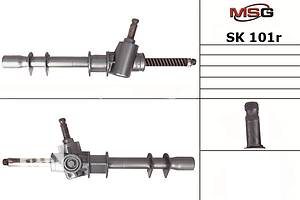

I came to the point where I turned the whole thing in front - to the steering rack! The rail turned out to be the original factory one. And, most likely, no one has ever removed or repaired it. The rods were knocked out and unscrewed almost without problems. By the way, they are also native, like the tips, most likely. The rods are in pretty good condition, as are the lugs.
But I will definitely replace this with new ones, since under load they may knock. Rods and steering tips have been new for a long time. Native rubber anthers-corrugations of the steering rack in perfect condition! Elastic bands under the clamps too!
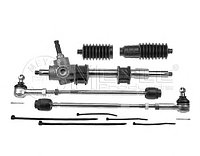
I decided to disassemble the steering rack completely. He unscrewed the adjusting nut-cover of the clamping of the “rack-worm” pair. Supporting plastic crap in excellent condition. He took off the retaining ring on the side, pulled out the plastic sleeve - it's worn out. The new VAG bushing has been in store for a long time. I put forward the rail itself - the condition of the teeth is perfect.
But it is curved like a crescent in the middle of the notches. I thought it was a defect and appeared after a side impact on one of the wheels. But it turned out that everything is as it should be, this is a design feature. The bend is made for the best contact with the worm and more pressure. I decided to take out the worm itself and see its condition and the condition of the bearings.
This required unscrewing the cover of the worm. She was heartily sealed at the factory and had grooves for unscrewing only with a special key. They drilled out everything with a drill, began to hammer with a punch along the protrusions in the lid. Everything bent, the lid refused to start.
We made a key from a pipe with teeth. And they did not manage to rip it off, since the duralumin corroded and even the spills of the VDeshka did not help. After long blows and raskurochivanie cover, she moved and twisted.
Let's spin it back and close it without any problems. The two thrust bearings were also found to be in perfect condition. The worm itself is also ideal. I managed to rinse all the parts and the body clean with gasoline, put in a new lubricant, and made my money.
I installed a new VAG bushing, it came in with an interference fit, as it should. The old one dangled - hence the knock. Bottom line: in the original factory rail, only the plastic sleeve was worn out. Only she went under the replacement. Why buy a new Chinese one? My rake rattles terribly, it's good that I found your record about restoring the original. That would also be the catalog number of the bushing: Is it not this one? There is no time in the photo at all.
I myself did not expect that the design of the steering rack is so simple. If you pick up the rail assembly and read my entry, then everything should work out. And I will try to take a photo.
| Video (click to play). |
Blockchain:
1FLCr5AdPHQouJoVkbezp76hTqLjcG4nNb How the steering rack is removed from the car. Tavria Slavuta ZAZ. Skoda felicia front wheel hub bearing replacement. Škoda Felicia minor repairs.Skoda Felicia backstage repair. Trumbler retired at Skoda Felicia. Repair of a steering rack with power steering for Ford and Mazda. Removing the dashboard on the Skoda Felicia. Skoda Felicia is the favorite Redesign of the Trambler Starter. Carburetor! From the VAZ. Disassembly and assembly of the steering rack Part 1. Repair of the steering rack. Toyota Prius 20. HOW DO YOU KILL THE MOTOR WITH YOUR HANDS. About Skoda and Volkswagen engines - IMPORTANT! How do you KILL the steering rack with power steering! Is it worth REPAIRING. It's just complicated. HOW YOU KILL A DUAL MASS FLYWHEEL. Skoda felicia, nuances in the repair of levers.

